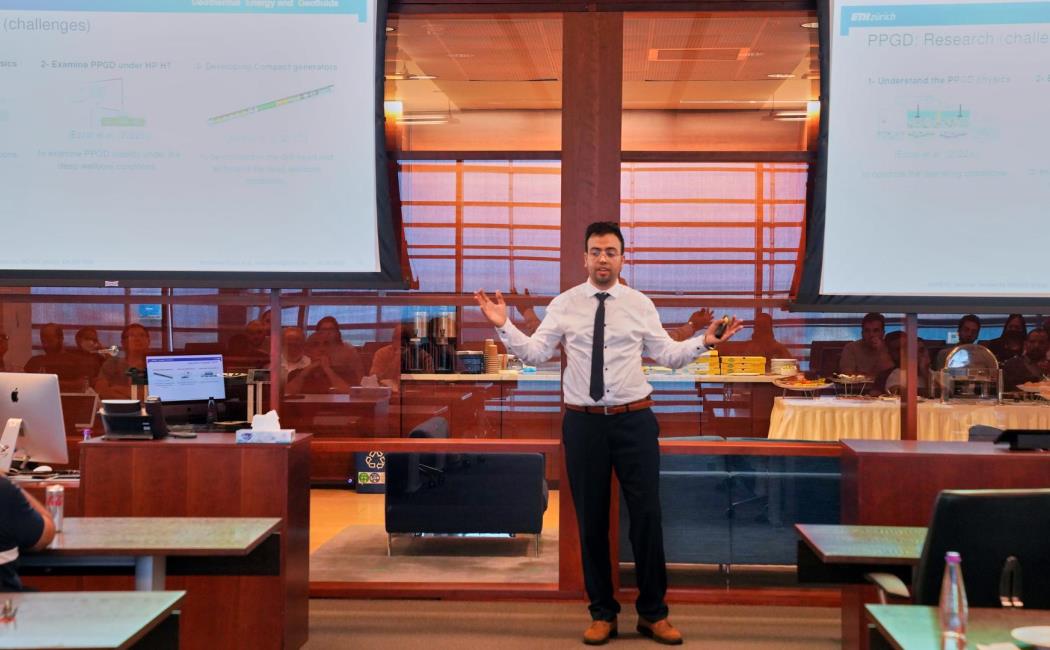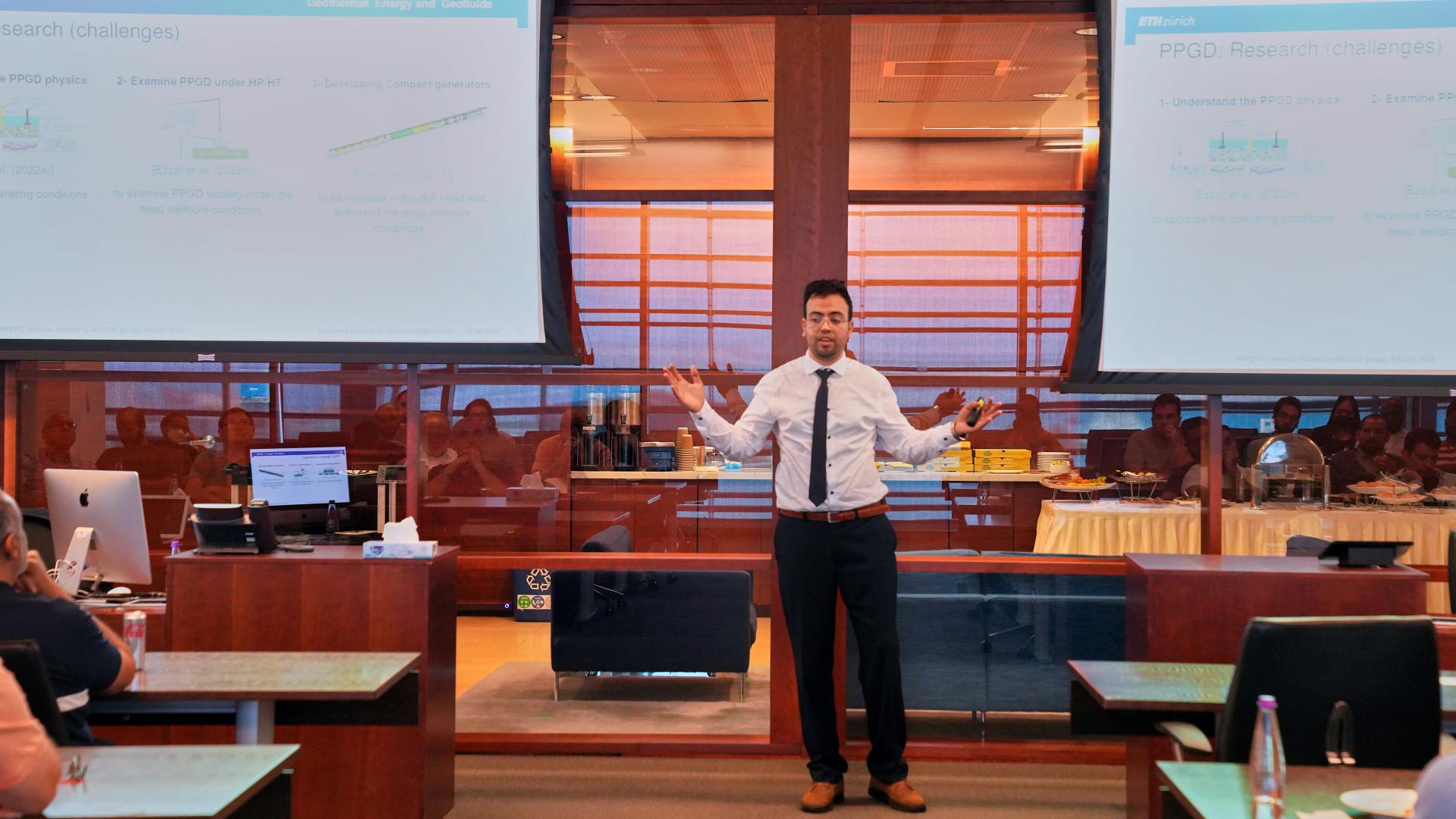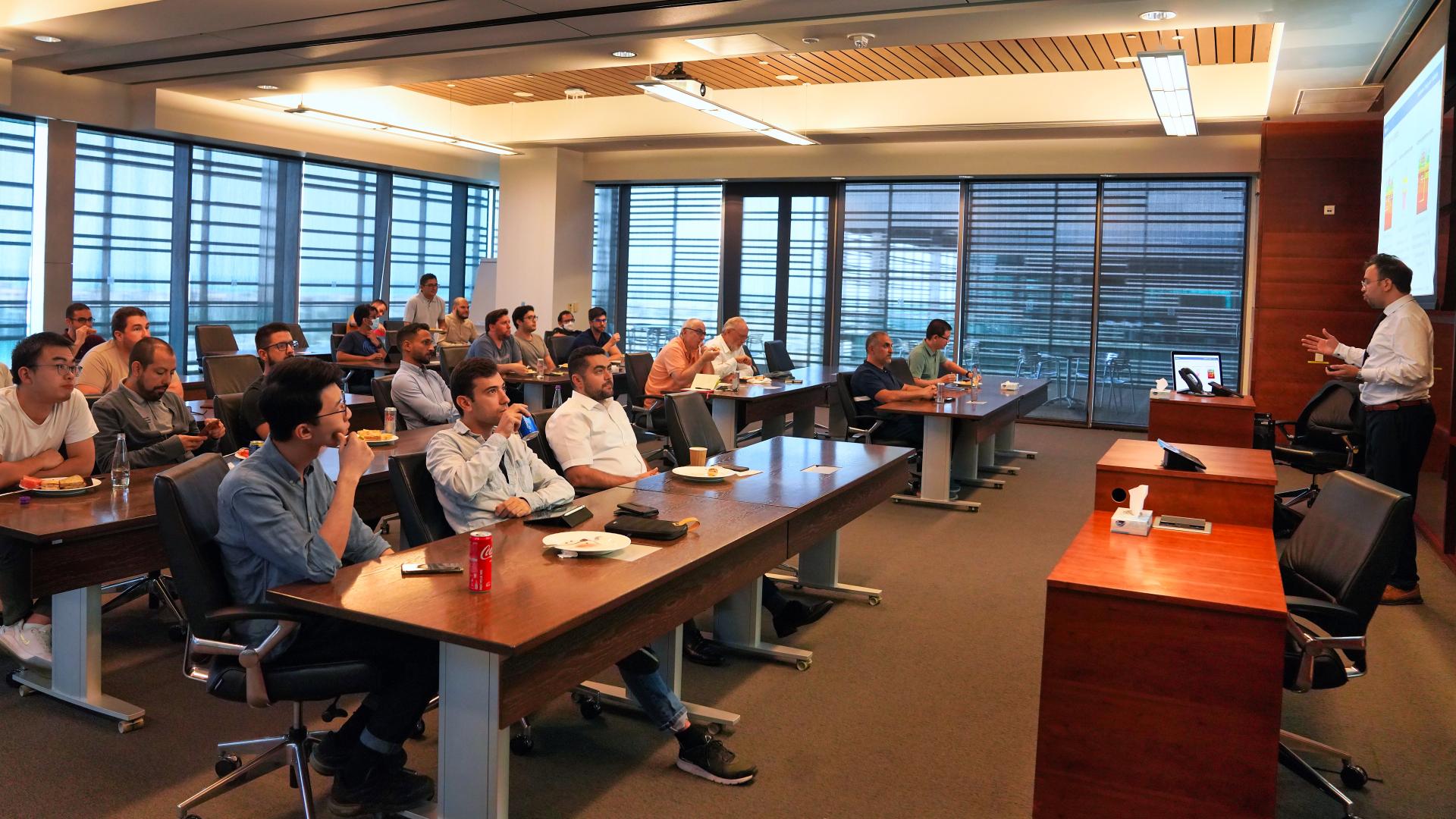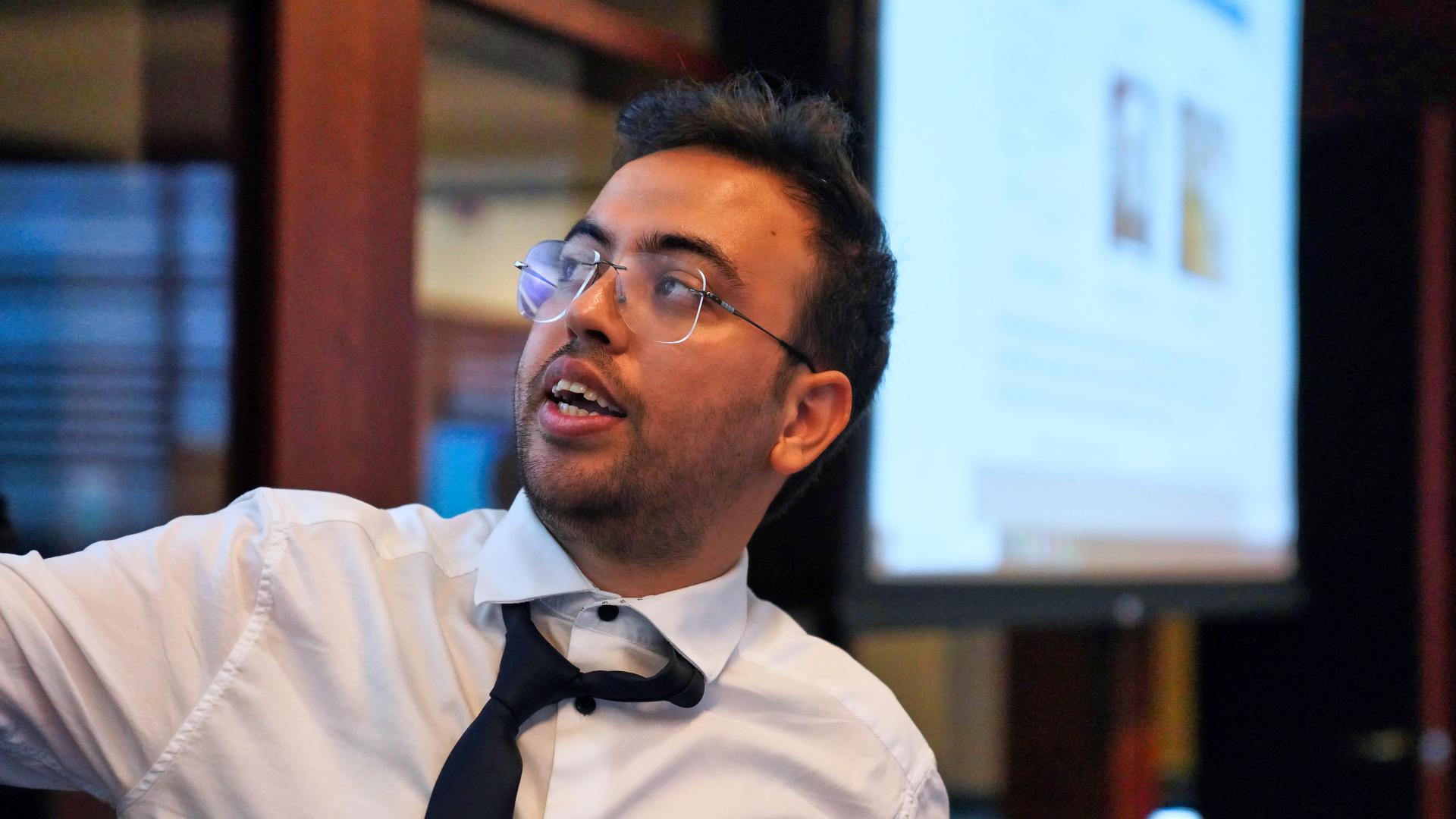.jpg?sfvrsn=39330263_0)
.jpg?sfvrsn=39330263_0)

08 June, 2022
MERGE Group is pleased to welcome Mohamed Ezzat as KAUST visiting student for one week. Mohamed Ezzat is a 4th-year Ph.D. candidate in Geothermal Energy and Geofluids Group at ETH Zurich. His Ph.D. investigates the physics underlining the Plasma-Pulse Geo-Drilling technology using numerical modeling and lab experiments under ambient and deep wellbore conditions. In 2018, Ezzat received the European MSc of Nuclear Fusion and Engineering Physics jointly from Stuttgart University (Germany), Carlos III Madrid University (Spain), CIMAT (Spain), and Ghent University (Belgium). In 2015, Ezzat received his BSc in Physics from Mansoura University, Egypt.
During a seminar hosted by the Merge Group (Led by Professor Shehab Ahmed) and ANPERC on June 7th, Ezzat delivered an informative seminar entitled “How Plasma-Pulse Geo-Drilling (PPGD) can make Geothermal Energy Cheaper”.
Geothermal energy is, in principle, a limitless energy resource that can work as a decentralized power source assuming the implementation of enhanced or advanced geothermal systems, which requires drilling at least 5 km deep, i.e., into hard crystalline basement rocks. However, drilling to such depths is currently too expensive as it results in specific capital electricity costs of about 145 USD/We. These costs need to be about 2-5 USD/We in order for geothermal energy to compete with other renewable energy sources.
Plasma-Pulse Geo-Drilling (PPGD), among other contactless drilling technology, may reduce the cost of drilling, thereby utilizing such geothermal energy resources. During PPGD, two electrodes transmit high-voltage pulses at >200 kV and rise times <0.5 microseconds to the rock surface, inducing electric breakdown inside the rock and thus rock fracturing. Even though comparative analysis has shown that PPGD is 17% cheaper than mechanical rotary drilling, further research and development may reduce the costs by more than 90%.


